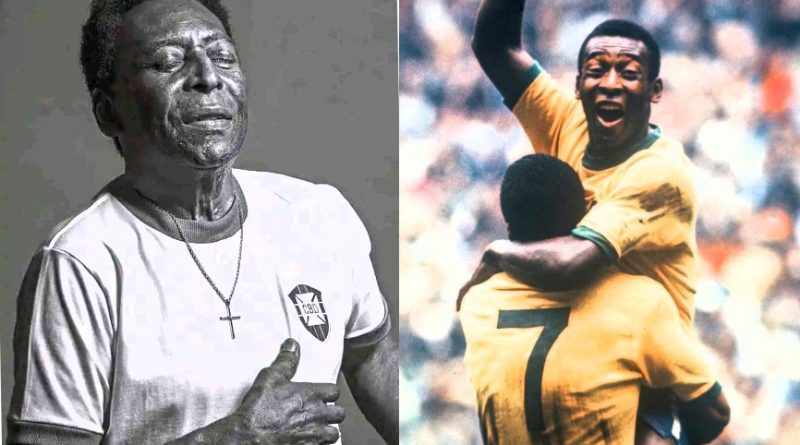Lights out for Pele
Emmanuel Alfred
Pelé, the great Brazilian player and arguably the greatest football player of all time has died at the age of 82 after battling health issues.
Pele, who has been receiving medical care at the Albert Einstein hospital in São Paulo since November passed on yesterday.
Confirming his death was a hospital statement saying, “the death of our dear King of Football at 3.27pm local time, due to the failure of multiple organs, a result of the progression of cancer of colon associated with his previous clinical condition.”
A statement from Pelé’s official Instagram page added: “Inspiration and love marked the journey of King Pelé, who peacefully passed away today. On his journey, Edson enchanted the world with his genius in sport, stopped a war, carried out social works all over the world and spread what he most believed to be the cure for all our problems: love. His message today becomes a legacy for future generations. Love, love and love, forever.”
While insisting he was strong, a statement from the hospital on 21 December had reported that Pelé required further care related to renal and cardiac dysfunctions.
Social media posts from his daughter Kely Nascimento showed that family members had gathered at the hospital to spend Christmas with him.
Brazil’s joint all-time record scorer won three World Cups as a player, in 1958, 1962 and 1970, over a 14-year international career that included 77 goals in 92 appearances for his country. Nicknamed “Perola Negra or the Black Pearl” and “the King”, Pelé was one of only three players to have scored in four World Cups. In 1,363 games, he scored 1,281 goals, at the time of his retirement in 1977 more than twice as many as his nearest challenger.
Born Edson Arantes do Nascimento on 23 October 1940, his professional career began at 15 and made his international debut a year later. In 1999, he was voted player of the century in a poll of Ballon d’Or winners and Time magazine named him as one of 100 most influential people of the 20th century.
In his prime, Pelé’s celebrity was such that he gained audiences with popes and heads of state, his allure so great that when the ill-fated New York Cosmos sought a marquee name to launch a soccer assault on America, Pelé was one of the very few footballers to be recognised by the wider American public in the 1970s.
In recent years Pelé had reduced his personal appearances, including in February 2020 when he did not attend a ceremony to unveil a statue of him representing the 1970 World Cup-winning team because of mobility problems that led to the Brazilian using walkers and wheelchairs in public.




